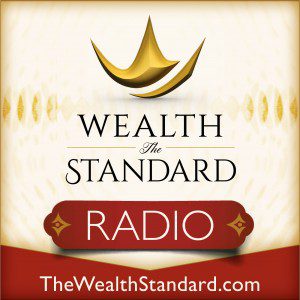Once an individual or family has gotten their feet under them, financially speaking, they start to look toward the future. How can they make the most out of their savings, to ensure that they are taken care of in the long run? Most of these people have either started researching or even started working with the usual list of investment vehicles: 401ks, mutual funds, IRAs, etc. The interesting thing is that when we talk to clients who have been investing in these vehicles for years and years, they’re still just as terrified of it as when they started, if not more so. However, neither of these groups has any idea that there is an alternative to Wall Street with less risk, more freedom, and more stability.
We teach about financial tools that act as an alternative to Wall Street, and ultimately replace Wall Street vehicles. they replace the need for a 401k, they replace a need for a mutual fund for a ROTH IRA. That’s powerful in and of itself because most people are conditioned to think that these tools are the only ways to invest and get a return that will actually afford them inflation protection and future compounded interest for their nest egg. And it replaces all of that without hardly any risk.
Another aspect that Wall Street doesn’t supply is the opportunity to finance additional investment methods, like real estate. Wall Street is selfish. They keep your investment until you pry it from them. And with the enormous availability of credit, most people rely on debt to finance investment. We teach about products that not only allow you to invest freely, but will also allow you to borrow against YOURSELF as opposed to a debt obligation in order to fund additional investments. It’s really the best of both worlds.
Now, the primary method that we teach, particularly when growing your savings, is called infinite banking. In a nutshell, that involves using a whole life insurance policy as an investment vehicle that provides a return, allows for financing, and also provides a death benefit. There are a lot of huge benefits to this method. But that’s just one of the things we teach about, and it really is different for everyone depending on what stage you’re of life you’re in.
In the next month we’ll be rolling out a new website that will help visitors better learn what stage they’re in, and how they can progress from there using. For each “traditional” investment method, we provide education and an accompanying alternative to Wall Street solutions that are typically more high-risk and stressful.
To learn more about these solutions, we would love to talk to you. You can request a free consultation with any one of our agents, no strings attached. Our primary business is educating people of what they can do to reach their financial goals!
This blog was created based on our podcast The Wealth Standard. Click here to listen to it now!
FAQ
Q: What are alternative investments on Wall Street, and how do they differ from traditional investments?
A: Alternative investments on Wall Street encompass a diverse range of assets such as real estate, private equity, hedge funds, and commodities. They differ from traditional investments like stocks and bonds by offering unique risk-return profiles and potential diversification benefits.
Q: How can individuals incorporate alternative investments into their financial portfolios, and what are the potential advantages?
A: Individuals can include alternative investments by working with financial advisors, considering their risk tolerance, and exploring options like real estate investment trusts (REITs) or private equity funds. Advantages may include potential returns and portfolio diversification.
Q: What should individuals be aware of when considering alternative investments, and how can they make informed decisions in this area?
A: Individuals should be aware of the complexities and risks associated with alternative investments, and they can make informed decisions by conducting thorough due diligence, seeking professional guidance, and aligning investments with their overall financial goals.








